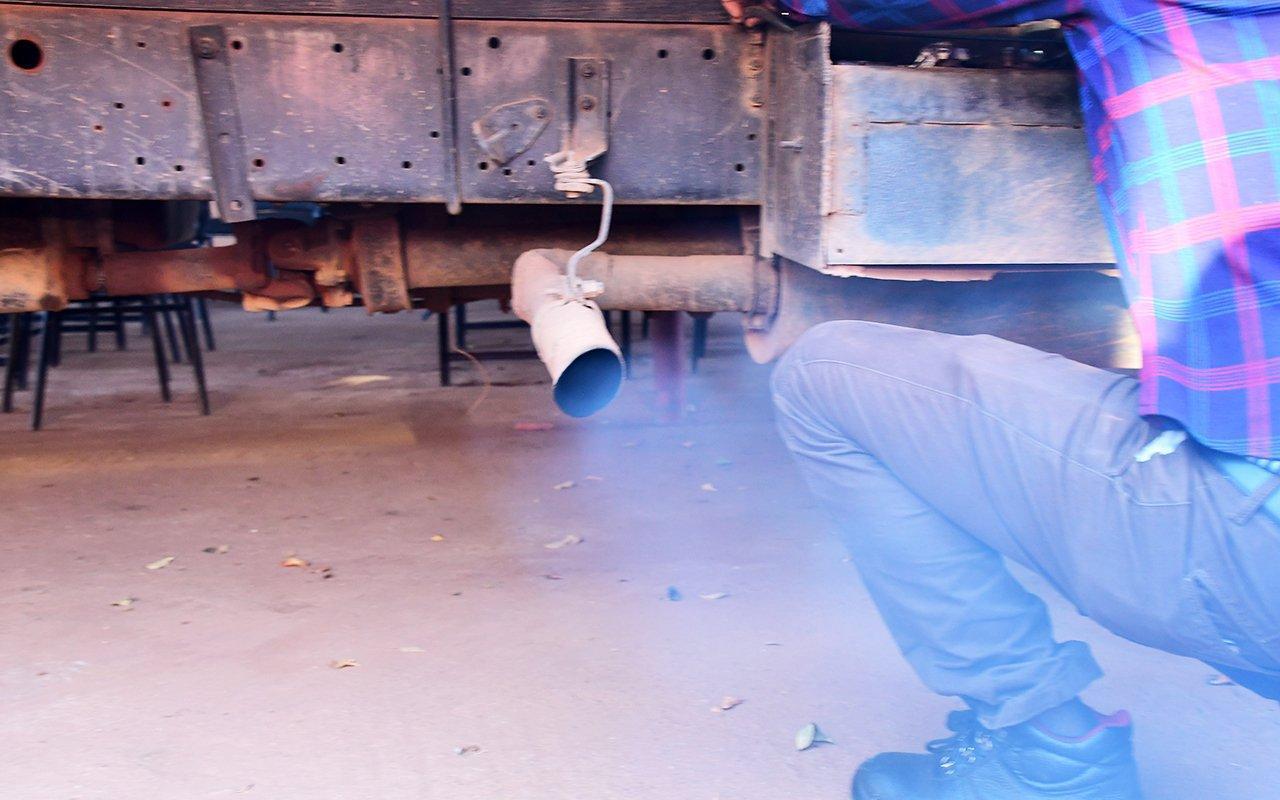Africa-Press – Uganda. Penalties for air pollution in Uganda will now range from a fine of Shs400m to Shs1b and or spending between four and 10 years in prison, depending on the gravity of the violation.
This information is contained in the new National Environment (Air Quality Standards) Regulations, 2024, released last week by the government.
The National Environment Management Authority (Nema) said the regulations will be essential in curbing an estimated 31,600 annual deaths in the country, which are linked to rising air pollution, especially in urban areas.
According to regulations, a person shall not, “from any source or activity, emit or cause to be emitted objectionable matter or obnoxious smells including smoke, gases, vapours, fumes, grit, dust or other matter capable of being dispersed or suspended in the atmosphere contrary to these regulations.”
In the new regulations, the government sets the limit for toxic gases usually emitted by factories/industries, vehicles, motorcycles and conveyance vessels. The regulations also banned the open burning of waste, one of the major contributors to pollution in urban areas.
The limits in Schedule Four of the document indicate that Carbon monoxide (CO) eight-hour pollution should not exceed 10 milligrammes per cubic metre. Carbon monoxide is a product of the incomplete combustion of fuels with carbon, such as oil, coal, wood, gasoline, and natural gas. Vehicle emissions account for the largest source. According to health experts, breathing air with high concentrations of CO can result in multiple health effects. There are also limits for other toxic pollutants such as particulate matter and sulphur dioxide, which are known to have serious human health effects.
For mobile emission sources such as vehicles, the government indicates that “A person shall not import a new or used motor vehicle, other conveyance vessel or mobile emission source unless it meets the emission limits prescribed under Schedule four to these Regulations.”
“The lead agency responsible for the regulation of motor vehicles, other conveyance vessels or mobile emission sources shall, in collaboration with other relevant lead agencies and the Authority, ensure compliance with sub-regulation,” the document reads.
Details in the document indicate that the lead agencies responsible for mobile emission source inspection shall, in consultation with the Authority, ensure that— “commercial vehicles, public service vehicles and private vehicles undergo emission tests in accordance with these Regulations, the Traffic and Road Safety Act, 1998 and the Traffic and Road Safety (Motor Vehicle Inspection) Regulations, 2016.”
“The operator of a motor vehicle, other conveyance vessel or other mobile emission source that does not pass the emission test shall undertake appropriate maintenance and other actions to bring the vessel into compliance with these Regulations,” the document reads further.
The regulations also indicate that without prejudice to any penalty imposed by a competent court under these Regulations, the Authority, a relevant lead agency, an occupational hygienist or an authorised officer may “order an operator or vessel to immediately suspend or terminate an activity where there is an acute risk of harm to human health or the environment.”
Dr Barirega Akankwasah, the Executive Director of Nema, said to address pollution from vehicles, “we shall restrict engine technologies and age in line with the new standards, encourage timely servicing of vehicles, ensuring good quality of fuel.”
Stationary sources such as factories or industries are required to have emission control plans with the best equipment to reduce emissions and also clear strategies to protect occupiers and workers from exposure to extreme levels of pollution. They are supposed to get a licence from Nema.
Dr Akankwasah said all industries are required to install scrubbers (air pollution control devices that can be used to remove some pollutants), electrostatic precipitators (a device that uses an electric charge to remove certain impurities) and fabric filters to reduce industrial emissions.
“Industries will also be required to install automated air quality monitors that transmit data automatically to the central database. Industries that will emit above allowable standards will require permits and will be required to pay for excess emissions,” he said.
“This way, industries that use green technologies will save money and those using old technologies will have to be penalized. After the grace period, certain technologies will be declared banned in line with the regulations,” he added.
Penalties
“A person who neglects to maintain any equipment or a vessel, fails to develop and implement an air quality compliance monitoring programme or air quality management plan; fails to install or use air quality monitoring equipment, commits an offence and is liable, on conviction — in the case of an individual, to a fine not exceeding twenty thousand currency points (Shs400m) or imprisonment not exceeding four years, or both,” the document reads.
In the case of a body corporate, it shall face a fine not exceeding fifty thousand currency points (Shs1b) or in the case of a continuing offence, they will face a fine not exceeding two thousand currency points (Shs40m) in respect of each day or part of the day on which the offence continues.
“A person who operates without a licence required under these regulations commits an offence and is liable, on conviction, to a fine not exceeding fifty thousand currency points (Shs1b) or imprisonment not exceeding ten years, or both,” the government prescribed.
“The owner, operator or occupier of premises in a control area who refuses, fails or neglects to immediately undertake remedial action where indoor air quality in those premises deteriorates severely, thereby causing concern of severe public health hazards, commits an offence and is liable, on conviction to a fine not exceeding fifty thousand currency points (Shs1b) or imprisonment not exceeding 10 years, or both,” the government added.
Data
Dr Akankwasah said they would implement the regulations to reduce the impacts of air pollution. He appealed to the public to take deliberate measures to reduce pollution.
“Air quality-related death is unrivalled by any other known cause of death every single year at a global Scale, yet the attention and investment in air pollution control remain minimal if at all. In Uganda, compromised air quality increases disease burden with close to 31,600 people dying from air pollution-related diseases annually, especially in urban areas,” he said.
“Studies on sources of pollution conducted in Kampala City revealed that transport is the leading cause of air pollution followed by domestic and biomass burning. Other sources of air pollution are industrial emissions and dust released from untarmacked roads,” he added.
According to Dr Akankwasah, the air quality in Kampala is worrying. “Our air quality monitoring data, especially around Kampala, indicates an increase in air pollution from an annual average of 39.5 microgramme per cubic meter in 2019 to 41 microgramme per cubic metre in 2024,” he said.
“This is about eight times above the annual average recommended guideline of 5 microgramme per cubic metre, by the World Health Organisation (WHO). This therefore means that our air is increasingly getting polluted and we must take deliberate measures to address the factors causing the pollution,” he added.
Apart from the measures above, the Nema boss said they are also emphasising proper waste management from collection and disposal, avoiding open burning of waste, which is a big problem. He said there is also a need to tarmac roads to reduce pollutants.
Ms Beatrice Anywar, the State Minister for Environment, appealed to development partners to continue supporting the government to implement the regulations. She urged Ugandans to follow the regulations and protect the environment to leave it better than they found it.
“We are doing a lot in conservation, planting of trees. We are working with various partners and there is good political will from the President who is spearheading this,” she said.
Source: Monitor
For More News And Analysis About Uganda Follow Africa-Press






